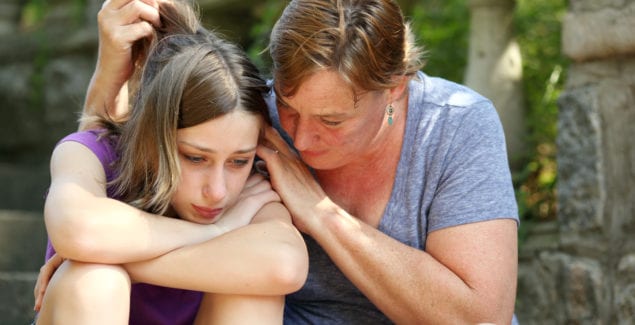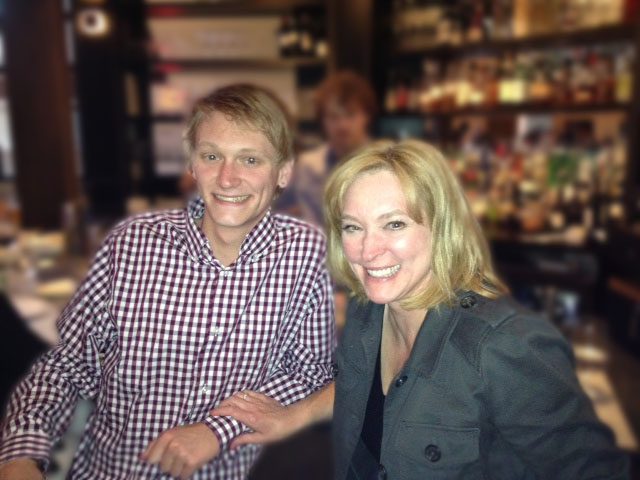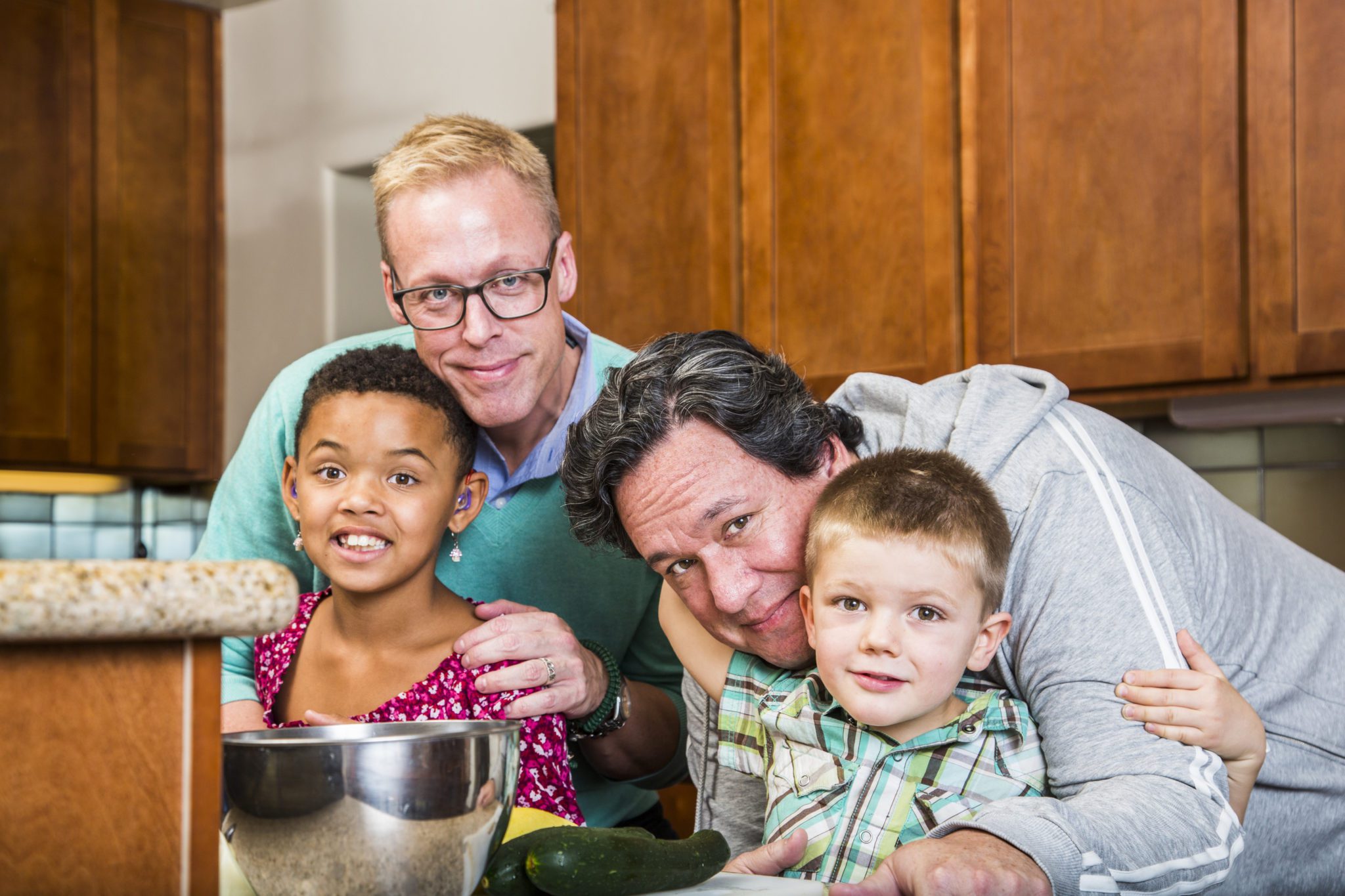An Encounter With The Unknown – From A Mother’s Lens

Posted in: Grade School, Teenagers, You & Your Family, Young Adults
Topics: Anxiety, Depression, Mental Illness + Psychiatric Disorders, Real Lives Real Stories
This blog post is part of a series entitled Real Lives, Real Stories: Personal Experiences With Mental Illness.
Note: The following person’s account of his/her personal experience has been published with his/her consent to support the mission of The Clay Center for Young Healthy Minds, and let others in similar situations not feel so alone.
Introduction
Gene Beresin, M.D.
This mother is a practicing Muslim and lives in UK with her family. Besides being a mother of 4 children, she has a Masters of Science in Social Anthropology in the UK. Her story may ring true for many parents. While hallucinations as a presenting symptom are rare, when any child of any age reveals a psychiatric condition, it is terrifying and stressful for everyone in the family.
This story also expresses another common theme. How can we understand the symptoms? Where can we turn for help? And how does one navigate the complex medical system, and adding greater difficulty, how does one navigate the mental health system?
What strikes me most about this mother’s story is the courage and strength of her family. Each member took responsibility to help her child in distress, and look at what she or he was doing within the family to contribute or ameliorate the problem. Everyone worked very hard together. I also want to point out that beyond the love and devotion of the family, they felt great support by their faith and community. These elements: family, faith, community and personal commitment were all instrumental in the healing of their child.
I personally learned a lot from the family, and was proud to have some part in her child’s recovery.
***
An Encounter With The Unknown – From A Mother’s Lens
A Perplexed, Loving Mother
As I sat at the kitchen table one morning, one of our 4 children, then aged 11 years, came to me and said ‘Mama, I am hearing voices in my head.’ I was dumbfounded! How does one react to something they have never encountered or heard of and which feels petrifying?! Needless to say, from that moment our lives changed forever! Today, four years on, with the grace of the Almighty, some amazing professionals, and immense hard work and love from the family, our child is leading a normal life. These challenging years made us more empathic and caring, and working through the difficulties has increased our resilience and confidence. We know how strong we are as individuals, and by staying united as a family, we believe we can overcome anything. The path was NOT easy, often feeling insurmountable and with many pitfalls. It is through unwavering faith, unconditional love, family values and the right professionals that we remained resilient, and believed with certainty that we would get through this hurdle. Having been through the journey, we wish to share our story, trusting it will offer hope to many others.
It is difficult to say what triggered the anxiety and depression our child encountered. The symptoms included hearing voices, self-harm, suicidal thoughts and threats, severe panic attacks, and multiple bouts of depressed periods each day. Much time was spent in bed. Social events were very stressful and we chose carefully which ones to attend. School attendance deteriorated and eventually stopped. An entire academic year and major exams were missed. During this phase, our child used us as a “punching bag”. All the frustrations, anger and anxiety were directed toward mum and sometimes dad – the safest people around. The intensity of the illness made our child emotionally irrational and very controlling, making life miserable.
At the onset, illiteracy around mental health was our foremost challenge, compounded by feelings of embarrassment and failure. The stigma made us extremely hesitant to reach out for emotional support. We felt people would not understand and judge us negatively! In this alien situation, ignorance, compounded with fear and anxious parenting styles, created an extremely lop sided dynamic, leaving the family feeling impotent and out of control. Our first port of call was our family doctor, who was our anchor throughout these challenging events. Although we engaged with several professionals and therapeutic models, it was to no avail till we met Dr. Beresin and his team.
Throughout the initial years, it was impossible to ignore our child’s insensitive utterances and behaviors, which caused immense anxiety in everyone and rocked our core family relationships. The home atmosphere was stressful and suffocating. It was difficult to know when and what would trigger an ‘episode’ and how long it would take for our child to calm down. As my child’s illness was the main focus for me, I had no control over my time or the trajectory of my life. At times, I felt resentful because although others helped where they could, they carried on with their life pursuits; I stopped many things to dedicate my whole self to care for our child and maintain some sense of emotional stability in the home.
Undoubtedly, our ignorance around mental health was most frightening, and so I strived to understand the psychological mechanisms at play through research and study. This in itself is a minefield and very time consuming! Although a psychologist friend introduced us to books on anxiety and self-harm, for us, ‘hearing voices’ was the scariest symptom and I wanted to accurately understand what this meant for our child. Through academic journal articles, I found a professor who specialized in this area, and he explained the phenomenon to me. Reading his book and the various case studies which explicated the complex landscape of this phenomenon, I felt better equipped to understand our child’s particular case. Moreover, to familiarize myself with the plethora of psychological therapies available, I read information posted on websites of well-established medical and psychological institutions. Most offer simple explanations on different therapies, how they work, and the theories and philosophies which underpinned their approach. This helped us make informed decisions about which therapeutic model would best suit our child. Furthermore, to support the family’s emotional stability, I took a course in systemic family therapy, which offered theories within family contexts to manage the emotional intricacies at home. It also helped understand how people react within family relationships and their own individual inner self.
The knowledge gained supported us to remain objective about upsetting events, not take them personally, and always keep in the forefront of our mind the relationship of deep love shared between child-parent, child-others and the family as a whole. We realized that psychological issues are not just about the person who is ill but the environment, the relationships, the family culture, the societal narratives and more – all playing a part in the symptoms encountered by the child and the family. We also familiarized ourselves with relevant medical jargon so that we could explain and discuss symptoms more coherently. This helped make our specialist appointments very productive, and the medical language did not cause hindrance.
Dealing with a young person in such distress is extremely delicate, and initially we felt very nervous. The journey started with admission into hospital to rule out any biological reasons for the symptoms. Our child stayed under observation in a day center for 6 weeks. He then had Cognitive Behavior Therapy and medication to manage his conditions, but this ended in frustrations because the relationship between child, psychologist, psychiatrist and family did not align. We then tried psychoanalysis, which was incompatible and the diagnosis was inaccurate. By now we were very low and despaired. Finally, we were introduced to Dr. Beresin and his team, who came up with an accurate diagnosis, appropriate medication, a coherent explanation, and a firm plan of action to tackle the impossible state we were in. It was the brilliance of the therapeutic relationship, the right diagnosis and closely monitored medication plan, which began the road to recovery.
To cope with our own emotional turmoil, I was recommended individual therapy. I found an amazing therapist and the process was life changing! We also engaged in joint tele-psychiatry sessions with Dr. Beresin and our child, which helped us reflect on our old- fashioned and strict parenting style. Therapy made us realize that as parents we had been strict disciplinarians – never a good formula for parenting success! No matter how much love we showered on our children, it was laced with an authoritarian approach, and this did not bear good fruit. We learned that all humans need empathy, a non-judgmental approach and to be loved for who they are.
My husband realized that his busy entrepreneurial life was detrimental to the family and that his child’s issues could be, in part, about his absence as a father and his direct style of communication. He realized he was enacting the detached relationship he experienced with his own entrepreneurial father, and he made a determined effort to being more present at home and developed an empathic connection with his family. For me, although I was always there for my children, I had a very traditional and disciplined worldview, which caused friction between me and the children living in a very multicultural setting. They needed a mother who understood and could help them tackle their challenges. As parents, we realized that children thrive when you invest in quality listening time which is compassionate and supportive – to know the emotional turmoil is normal, to be candid and open to resolving struggles amicably. As we shifted our parenting style we saw immediate rewards – home felt warmer, less tense, and much happier and open! We were sad for the time wasted but grateful that we had learned how to be authoritative not authoritarian parents. The family were thrilled to see these changes and overall, it proved to be a win-win situation!
We also engaged in family therapy sessions where all 6 of us met with Dr. Beresin. It took a few sessions before we managed to create a safe space to honestly talk about difficult emotions, which were never spoken about. In these discussions we openly acknowledge how hard it was for everyone, not just the ill person. Each child expressed his or her feelings and was heard and understood by my husband, the children and myself! Although it was a heart-wrenching process, it was important for healing and learning that it is okay to have all types of conversations at home. These discussions demonstrated how everyone in the system affects each other, and the help each of us needed for coping. In these meetings, we worked through the challenges we faced, and this facilitated the growth of our individual potentials.
For the child who was suffering, the foundational impetus to healing had to be love, love and more love for us the parents. We very quickly discovered that an upset parent can cause the child’s emotions to intensify. By keeping all our thoughts and actions rooted in our love, we tried to stay genuinely empathic towards our child. Any display of dishonest or pretend affection by us was immediately picked up and things would escalate into negative emotional reactions. Of course there were many instances when we got upset – but we always reconciled and carried on. We were advised on how to set appropriate limits on our child’s behavior and re-directing him to healthy ways of coping and regulating his emotional state – and at the same time, we learned how to become aware of and regulate our emotional reactions as parents. This helped us to stay strong and not exhibit excessive anxiety nor upset during challenging episodes, and at the same time, contain the difficult feelings thrown at us. We also had to modify and be open to administering medication as required; even though our folk theories were anti-medication. This caused tremendous anxiety in us, but we stayed firm and strictly followed the professional advice we were given.
As a couple, we pull each other up when we were feeling lost and desperate. We could not afford to be judgmental or harsh, we knew we would succeed if we remained strong and united. Without this harmony, we and everything around us would have crumbled. For me, I needed lots of love to not feel like a failure as a mum. For my husband, he needed lots of care and empathy when he realized the impact of his unconscious behaviours on the family. Furthermore, as parents, we made it a point to spend quality time with the children and keep love and fun in the air – no mean feat! It was most important to be mindful that we all have human vulnerabilities to contend with. We practiced staying calm even when we were almost broken; we had to exhibit strength so as to help others stay emotionally buoyant. It would be accurate to say that it was largely the modifications in the family system and relationships that afforded the greatest possibility for recovery.
Today, 4 years on, it is due to the collective effort of professionals, the family, importantly also our faith and family values that our child has fully recovered, leading a normal life. As I mentioned, the path is NOT easy. We had many pitfalls but we stayed resilient, and always believed we could get through it by the grace of the Almighty. We can never give up on children – can we? – they are our biggest wealth and the custodians of this earth.


 Share
Share Tweet
Tweet





